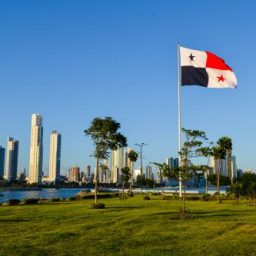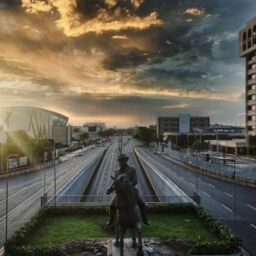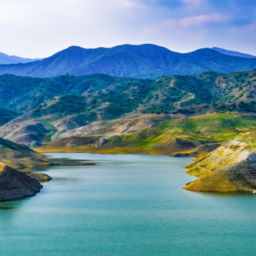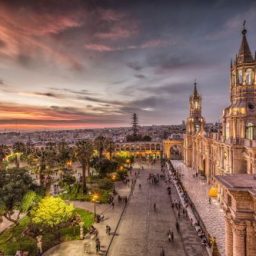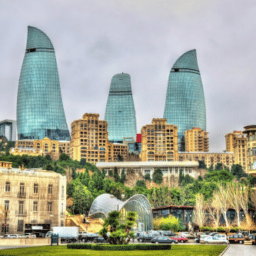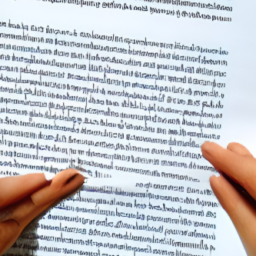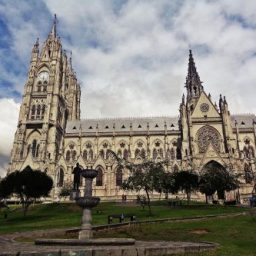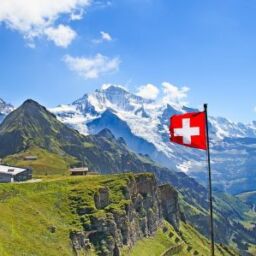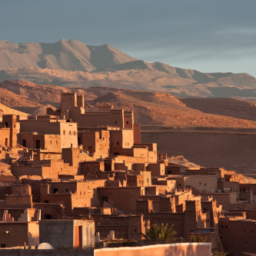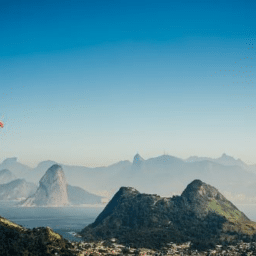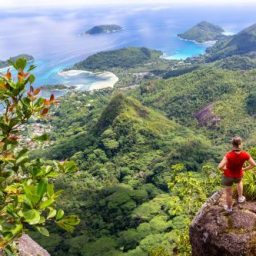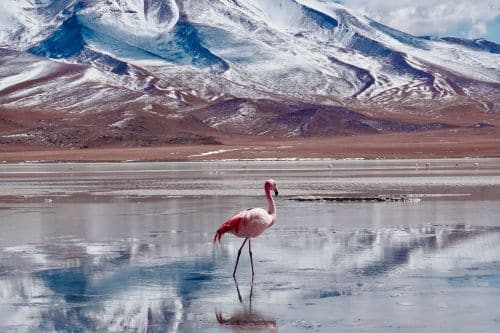

Bolivia is a beautiful and diverse country, famous for its extraordinary landscapes, rich culture and fascinating history. Located at the heart of South America, Bolivia borders six countries and is considered one of the most ethnically diverse countries in South America. From the Andes, through the Amazon, to the sunny Altiplano. Bolivia offers unforgettable experiences.
In this article, we take a closer look not only at Bolivia’s language, but also at its history, culture, political system and everything you need to know before travelling to this country. Read on!
Contents
Bolivia
Bolivia is a South American country bordered by Brazil to the east, Peru to the north and west, Chile to the southwest, Paraguay to the southeast, and Argentina to the south. The largest city and the biggest economic centre of Bolivia is La Paz, but the historic city of Sucre is the constitutional capital. The country’s government is also located in La Paz. The official name of the country is the Plurinational State of Bolivia.
Moreover, Bolivia has a rich, diverse culture and history. The country was home to many pre-Columbian civilizations, including Tiwanaku and then the Inca Empire, which conquered much of what is now Bolivia.
Geography of Bolivia
Bolivia is also characterized by a diverse landscape. To the west, the Andes Mountains rise, and to the east, the land slopes down to lowlands. The Bolivian Plain is home to lush equatorial forests and tropical plains. In the mountains, climate is significantly cooler, with large differences in temperature between day and night and between seasons.
In the east of the country, in the valleys of the Amazon and Beni rivers, climate is tropical, hot and rainy. The equatorial forests of Bolivia there host numerous exotic species of animals that prefer a humid climate. Jaguars, capybaras, caimans, and tapirs are just a few examples.
The highest peak in Bolivia is Sajama, a mountain reaching a height of 6542 m above sea level. In Bolivia, there is also the largest salt lake in the world – Uyuni. Lake Titicaca is one of the highest lakes in the world. The largest rivers in Bolivia are Mamoré, Beni and Guaporé. Bolivia is also one of the two landlocked countries in South America.
Political system
The state’s political system is a presidential republic. Bolivia’s constitution establishes a tripartite separation of powers between the legislative, executive, and judiciary branches.
Executive power is exercised by the office of the president. The president is elected by universal suffrage for a five-year term, without the possibility of re-election. He is the head of state, and his powers include directing state policy, representing the country on the international stage, and appointing ministers.
Legislative power is vested in a bicameral parliament. It consists of the Chamber of Deputies, whose 130 members are elected for five-year terms, while the Senate consists of 36 senators, also elected for the same period.
Judicial power is exercised by the Supreme Court, the Constitutional Court and lower courts.
Over the past few years, Bolivia has experienced political and social instability related to the controversial 2019 presidential election and subsequent protests. As a result, in 2020 there was a change of power and the appointment of a provisional government, which held presidential elections in November 2020.
Administrative division
In Bolivia, the administrative division distinguishes two administrative units: larger departments and smaller provinces. The nine departments of Bolivia are (departmental capitals in brackets): Chuquisaca (Sucre), Cochabamba (Cochabamba), Beni (Trinidad), La Paz (La Paz), Oruro (Oruro), Pando (Cobija), Potosí (Potosí), Santa Cruz (Santa Cruz de la Sierra) and Tarija (Tarija).
Economy
Economically, Bolivia is unfortunately not a highly developed country. It is largely centred around the mining industry. The most important export commodity of the country is tin. When in the 1980s there was a drastic drop in its prices, Bolivia experienced an economic collapse, resulting in a sharp increase in inflation and foreign debt. The second-largest economic sector is agriculture.
Brief history
The area that is currently Bolivia was inhabited by several highly developed civilizations, such as the Tiwanaku and the Incas, in pre-colonial times. In 1532, Spanish conquistadors led by Francisco Pizarro conquered the country, established governments, and imposed their culture and religion. For the next three centuries, Bolivia remained under Spanish rule until gaining independence in 1825.
After becoming an independent state, Bolivia became a republic and went through many political and social changes. In 1952, there was a national revolution that brought many social changes, such as land reforms, the right to vote for women, and the introduction of health and education for all. Unfortunately, Bolivia did not gain political stability over the next decades. In 1964, there was a coup d’état that effectively stopped the reforms, and the army seized power. Today, Bolivia is formally a democracy, but it still struggles with many problems.
Spanish language in Bolivia
Since the area of modern Bolivia was inhabited by pre-Columbian cultures for at least 20,000 years, the country still has a very diverse population. It consists of numerous ethnic groups, including Quechua, Aymara, Guaraní, and Mestizos. The official language is Spanish, but many other indigenous languages are also spoken.
The Spanish language spread in through country during the colonization of South America. The Spanish colonizers who settled in Bolivia brought their regional dialects with them. Despite this, the language spoken in Latin America differs from that in Spain. In the old continent, the national standard of pronunciation is the North Castilian dialect, and in South America, seseo pronunciation is preferred.
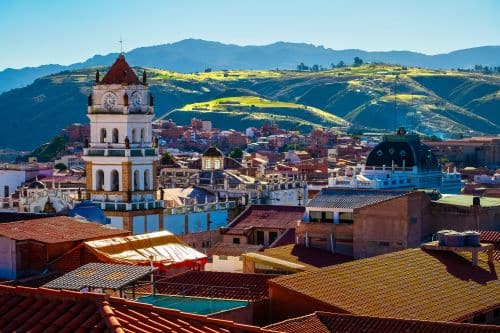
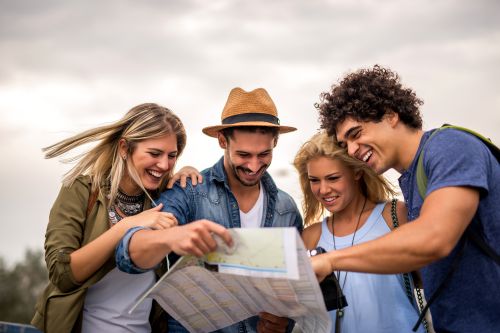
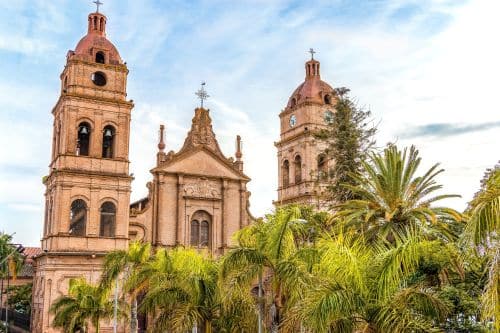
Basic Spanish phrases
Basic Spanish phrases will come in handy not just in Bolivia, but in a number of other countries. These basic expressions should make feel more at ease in your journeys through the Spanish-speaking world.
Sí – Yes
No – No
Tal vez – Maybe
Por favor – Please
Gracias – Thank you
Está bien – That’s ok
Muchas gracias – Thanks a lot
Disculpe – Excuse me
Lo sé – I know
No lo sé – I don’t know
Comprendo – I understand
No comprendo – I don’t understand
Perdón – I’m sorry
¿Hablas español? – Do you speak Spanish?
No hablo español – I don’t speak Spanish
¿Podría, por favor, repetir eso? – Can you repeat?
Polite phrases
De nada – Please
No tiene importancia – Don’t mention it
No pasa nada – You’re welcome
Greetings and Goodbyes
Hola – Hello
Buenas – Hi
Buenos días – Good Morning
Buenas tardes – Good Evening
Adiós – Goodbye
Buenas noches – Goodnight
¡Nos vemos! – See you!
¡Hasta luego! – See you later!
¡Qué tengas un buen día! – Have a nice day!
Signs in public places
Entrada – Entrance
Salida – Exit
Salida de emergencia – Emergency exit
Empujar – Push
Tirar – Pull
Aseos – Toilets
Caballeros – Gentlemen
Señoras – Ladies
Libre – Free
Ocupado – Occupied
Fuera de servicio – Out of service
No fumar – No smoking
Privado – Private
No pasar – No entrance
Tourist attractions in Bolivia
Bolivia has not only tropical nature, but also wonderful historical monuments, including those inscribed onto the UNESCO World Heritage List. The following are especially worth mentioning:
- Samaipata Fort
- The city of Potosi
- Jesuit missions in the area inhabited by Chiquitos Noel
- Kempff Mercado National Park
- the spiritual and political centre of the Tiwanaku culture
- the historic city of Sucre
Travelling around the country – useful information for visitors
It’s time for some practical advice that will definitely prove useful both when planning and during your trip around Bolivia.
General entry requirements
Citizens of European Union, United Kingdom, Canada and Australia (but not USA) staying in Bolivia for no longer than 90 days are exempt from the visa requirement. If you live in other places, make sure whether you need a visa.
Local time in Bolivia
There is only one time zone in Bolivia – UTC-4, 4 hours offset from the universal coordinated time. There is also no summer or winter time.
Transit and customs advice
The import and export of bolivianos is allowed without restrictions, while for other currencies, the amount must be declared on the customs declaration form. Amounts over $10,000 should also be reported.
When bringing items for personal use, such as clothes, cosmetics or photographic equipment, there is no need to declare them or pay additional taxes.
Travellers to Bolivia should take into account the need to pay VAT in the amount of 13% when purchasing goods in the country. This tax can be refunded after leaving the country, provided that the relevant documents are presented.
Currency and financial issues
The official currency in Bolivia is the boliviano (abbreviation BOB), which was introduced in 1987. The single boliviano is divided into 100 centavos. Currency can be exchanged in places such as banks or currency exchange offices, as well as in some hotels and shops. You can also use credit and debit cards, but they are not accepted everywhere, especially outside major cities. In some places you can also pay in US dollars, but it’s worth having a few bolivianos in your wallet, because payments in dollars are often more expensive.
Insurance
It is recommended to have health insurance as some medical services in Bolivia are expensive.
Health issues and vaccinations
There is no vaccination requirement for visitors to Bolivia, but yellow fever vaccination is recommended if you plan to visit certain regions of the country, such as the Amazon.
Public transport
Various forms of public transport are available in Bolivia, such as buses, minibuses, taxis, three-wheel rickshaws and mototaxis. There is also a railway connection with Argentina.
Driving licence
An international driving licence is accepted in Bolivia. If you have one, upon arrival, you can rent a car and move freely on the roads.
Diplomatic representation
When you are staying in a foreign country, the embassy and consulate are important places to know about. Even though you may not require their assistance, it is advisable to be aware of how to contact them in case of need. Before your trip, take some time to research and locate information about your country’s diplomatic post.
Bolivia with Skrivanek
Building relations with Bolivians, both private and professional, will be much easier when you know Spanish. But what if you haven’t mastered such a skill yet? We have two options for you. Either to learn Spanish at a language course, online or on-site, or to use translation services. In both of these cases, you can count on our offer. Feel free to contact us anytime!

